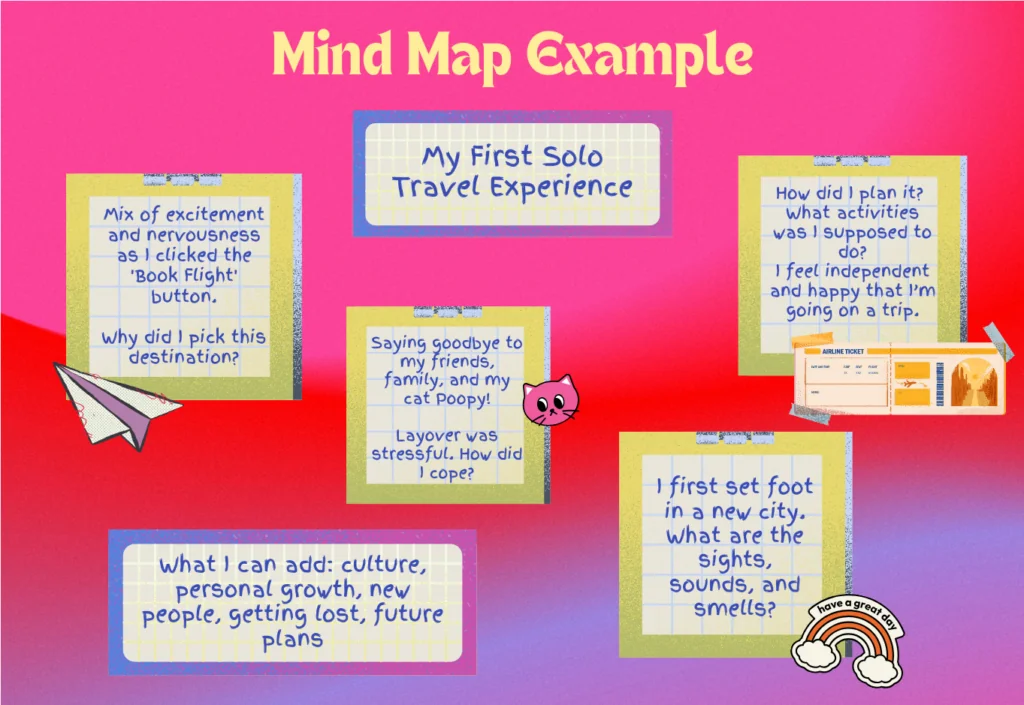A narrative essay is a unique form of storytelling that you might encounter both in school and in personal writing. Its primary purpose is to tell a story from the writer’s own perspective, making it both engaging and insightful. This style of essay allows you, the writer, to express your thoughts and experiences in a way that can be both entertaining and educational for your audience.

✅ AI Essay Writer ✅ AI Detector ✅ Plagchecker ✅ Paraphraser
✅ Summarizer ✅ Citation Generator
One of the reasons narrative essays are so favored is their versatility. They can be used to illustrate personal growth, describe an important moment, or convey your thoughts on a variety of topics in a more personal and creative way compared to other academic writings like expository or argumentative essays. This personal touch often makes narrative essays more relatable and interesting to readers.
In academic settings, narrative essays help develop basic writing skills. They encourage you to think critically about your own experiences and how to present them. This process improves your ability to organize your thoughts, use descriptive details effectively, and engage readers with your content.
Narrative Essay and Its Elements
A narrative essay is a piece of writing that tells a story from the writer’s own perspective. It includes several key components that structure the narrative and guide the reader through the events. These elements are the introduction, plot, characters, setting, climax, and conclusion. Each part plays a vital role in building the story.
- Introduction: Sets the stage for your story, presenting the situation or main concept.
- Plot: Describes the sequence of events that unfold in your essay.
- Characters: Involves everyone who plays a part in the narrative, detailing their characteristics and roles.
- Setting: Establishes the time and place where the story occurs.
- Climax: The peak of your story, where the main conflict or event comes to its most intense point.
- Conclusion: Wraps up the story, resolves any remaining issues, and reflects on the overarching message.
There is one thing extremely important when writing a this type of essay.
| A compelling narrative essay must grab the reader’s attention right from the start. This is where the narrative hook comes into play. |
It is the very first sentence or paragraph that draws the reader into your story. An effective hook not only piques curiosity but also connects emotionally or intellectually with the audience. It could be a provocative question like “Is It Possible To Learn a Language Without Immersion?” (or maybe not as boring), a striking statement, a brief anecdote, or a powerful quote. Whatever form it takes, the hook is crucial because it sets the tone and establishes expectations for the entire essay.
Choosing a Topic for Your Narrative Essay
Selecting the right topic for your narrative essay is key to creating an engaging and impactful piece. It’s best to choose a topic that is both interesting to you and has emotional significance. This could be a personal experience, a memorable event, or a story that has shaped your understanding of the world.
When brainstorming ideas, try to think about moments in your life that sparked strong emotions, whether joy, surprise, or even sadness. These are often the experiences that make the most compelling stories. Another technique is to imagine “what if” scenarios that expand your creative boundaries—these can lead to highly original and inventive narratives.
Here’s a simple example for you to get inspired:

And here are a couple of brainstorming methods to help you get started:
- Mind Mapping: Start with a central idea and draw branches to different aspects or memories related to it. This can help you visualize connections and expand on those ideas.
- Freewriting: Set a timer for a few minutes and write continuously about anything that comes to mind when you think about potential topics. Don’t worry about grammar or punctuation; the goal is to generate ideas freely and see what surfaces.
Choosing a topic that resonates personally will not only make the writing process more enjoyable but also produce a more heartfelt and relatable narrative essay.
Structuring Your Narrative Essay
Organizing a narrative essay effectively involves arranging the events in a way that makes sense to the reader and highten the story’s impact. Typically, you should start with an introduction that sets up the situation and introduces the main characters and settings. This part hooks the reader and sets the tone for the rest of the essay.
The body of your essay should follow a clear sequence of events, ideally in chronological order. As you describe these events, integrate details that add depth and emotion to the story. These details could include descriptions of the environment, the characters’ thoughts and feelings, and the actions that drive the story forward.
Finally, your conclusion should wrap up the narrative, resolve any conflicts, and reflect on the broader implications of the story. It’s important to leave the reader with something to think about, whether it’s a lesson learned, a poignant observation, or just a satisfying end to the tale.

By structuring your essay with a clear beginning, middle, and end, and weaving in rich details throughout, you will create a narrative that holds your reader’s interest from start to finish.
Tips for Writing a Narrative Essay
When writing a narrative essay, it’s important to keep a few key tips in mind to make your story engaging and meaningful.
Always write from your own perspective.
This personal view helps make the narrative authentic and relatable to readers. It’s like sharing a part of your life with them, which can be very powerful.
Use creative language.
Don’t just tell your readers what happened—show them. Use vivid descriptions and dynamic words to bring your story to life. This makes your writing more interesting and can help your readers visualize the events as they unfold.
Always keep the purpose of your essay in mind.
Are you trying to make the reader laugh, cry, or think about something in a new way? Your goal should guide how you write your story and what details you include.
Include dialogue when appropriate.
Conversations between characters can add depth to your story and provide more insight into their relationships and personalities.
Remember to keep your narrative focused.
Stick to the main story you want to tell without adding unnecessary details. This will help ensure that your essay is clear, concise, and enjoyable for your audience.
FAQ
Follow us on Reddit for more insights and updates.




Comments (0)
Welcome to A*Help comments!
We’re all about debate and discussion at A*Help.
We value the diverse opinions of users, so you may find points of view that you don’t agree with. And that’s cool. However, there are certain things we’re not OK with: attempts to manipulate our data in any way, for example, or the posting of discriminative, offensive, hateful, or disparaging material.